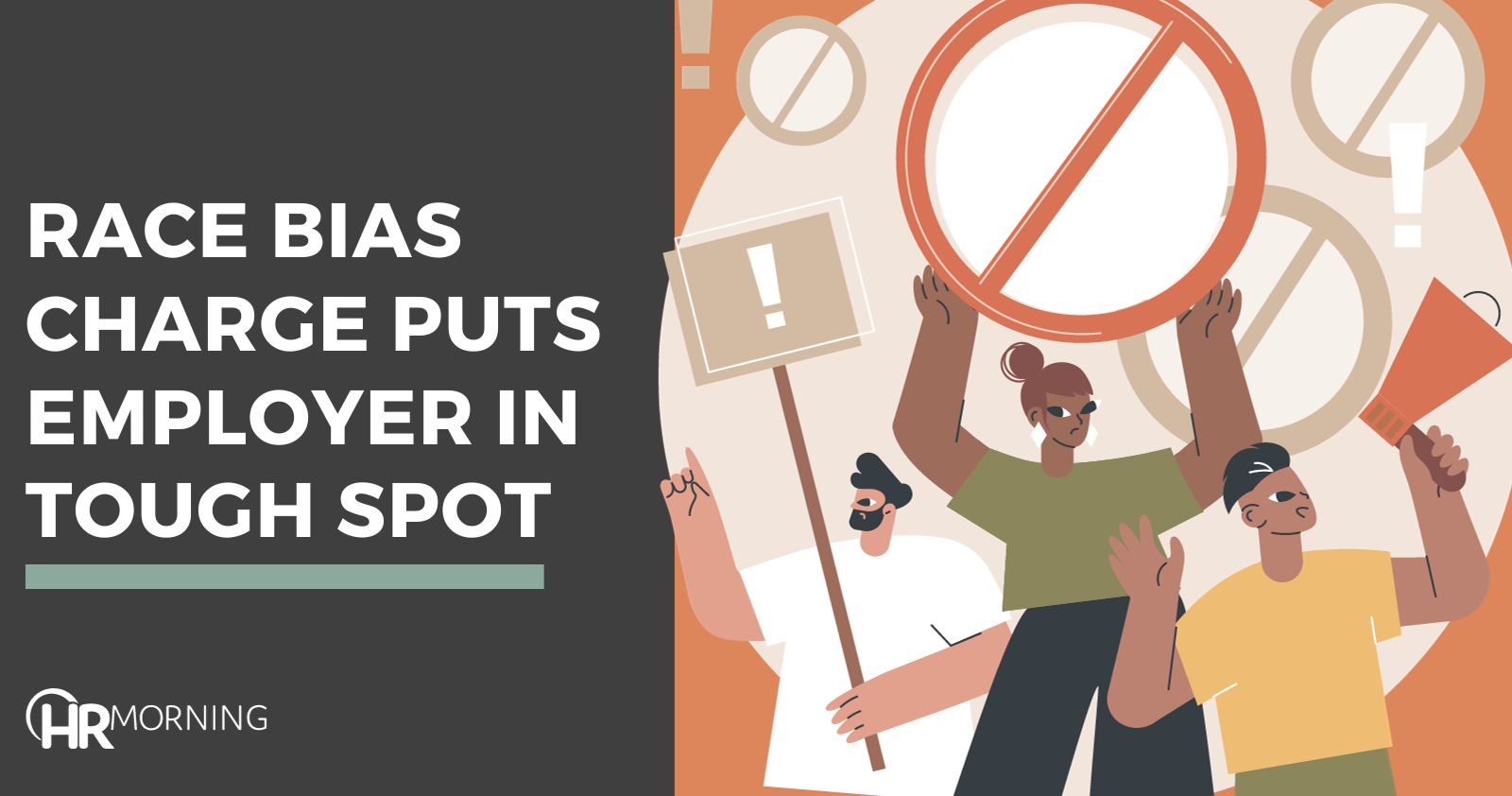HR pros are put in a tough spot when an investigation shows that an employee who alleges race bias or other mistreatment might actually be the problem.
On the one hand, discipline might be warranted if the investigation points a finger at the accuser. But on the other, disciplining the accuser can look a lot like unlawful retaliation.
So what’s an employer to do?
A new federal appeals court ruling makes it clear that when an employer conducts a good-faith, balanced investigation into possible employee misconduct, it can act on its findings – even if that employee has recently alleged unlawful bias on the job.
Stories of conflict, bullying
Daphne Berry, who is Black, worked as an emergency room nurse at Crestwood Hospital beginning in 2007.
Initially hired as a staff nurse, Berry was later promoted to the supervisory position of full-time charge nurse.
Berry’s supervisor generally praised her performance, but many of Berry’s colleagues did not share in that assessment. In fact, Berry often clashed with other nurses.
For example, Berry once told another nurse in front of others that he “suck[ed] as a nurse.” And the head of the emergency department learned that Berry was a bully.
In addition, video showed Berry and her team singing, dancing and laughing in the room of a psychiatric patient. The hospital received a complaint about that incident from someone who claimed to be a patient or family member, but there were rumors that it was actually another hospital employee who filed that complaint to get Black nurses fired.
Was complaint about patient based on race bias?
While the hospital investigated the patient incident, Berry told supervisors that it was a racist employee who had filed the complaint against her. She said she was being racially targeted and treated unfairly by management.
Berry and other nurses involved in the incident were issued disciplinary notices and suspended without pay for three days.
Berry said the discipline was racially motivated. She filed a grievance and continued to complain of alleged race bias.
The hospital received several complaints and noticed significant turnover in Berry’s department. It decided at that point to have a regional HR director investigate, including by conducting an employee relations survey.
Two out of three ain’t is bad
The director interviewed 24 employees, and 16 of them raised specific concerns about Berry.
In combination, they said she bullied others, was mean and rude, and was even “very violent” on two separate occasions.
Berry’s supervisor continued to defend her even after these findings, but the hospital accepted the director’s recommendation that it end Berry’s employment because she was “the common denominator” when it came to workplace conflicts and because the interviews showed her to be negative, bullying and unprofessional.
Near the middle of May of 2018, the hospital terminated Berry’s tenure.
Suit alleges bias, retaliation
She sued for race bias and retaliation, but a lower court ruled against her.
Focusing on the retaliation claim, the U.S. Court of Appeals for the Eleventh Circuit (Alabama, Florida and Georgia) affirmed the lower court’s ruling.
Simply put, Berry did not produce enough evidence to cast doubt on the sincerity of the reason the hospital gave for its decision, the appeals court said. To do that, she needed to point to “weaknesses, implausibilities, inconsistencies, incoherences, or contradictions” in the hospital’s explanation. But she did not do anything to cast doubt on the hospital’s explanation that it let her go to improve morale and reduce turnover, the appeals court said.
Timing isn’t always everything
What about the fact that Berry was terminated just months after she complained of discrimination – and just seven days after a call to a hospital complaint hotline and three days after her meeting with the HR director? Didn’t that prove retaliation?
No, the appeals court said. Though temporal proximity is a relevant factor when analyzing retaliation claims, “the intervening discovery of employee misconduct can sever the causal inference created by close temporal proximity.”
Translation: If you allege bias and then we learn (even soon after) that it was you who screwed up, we can discipline you based on what we found out.
Berry’s positive employment evaluations did not save her, the court added, because they all were completed before co-workers began to complain about her.
None of Berry’s evidence cast sufficient doubt on the veracity of the hospital’s stated reason for the discharge, the court said, and the circumstantial evidence was not strong enough to create a reasonable inference of retaliatory intent.
The lower court’s ruling was affirmed.
Don’t let timing scare you (too much)
When an employee complains of discrimination, the key is to take an evenhanded and fair approach to conducting an impartial investigation that is properly documented. When that is done, employers may let the chips fall where they may.
In addition, and as this case shows, an employee complaint of discrimination does not prevent an employer from separately and independently investigating possible misconduct by that same employee – assuming, of course, that the investigation itself is not a retaliatory response to the charge of bias.
Berry v. Crestwood Healthcare LP, No. 22-11129 (11th Cir. 10/27/23).


